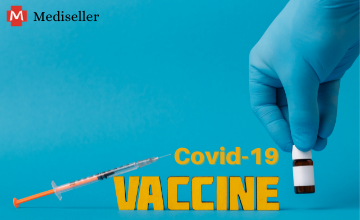In the previous blog, we have seen various types of vaccines, the effectiveness, and safety concerns about the Covid vaccines. This blog will be taking you through some pointers before you get vaccinated and FAQs.
Before vaccination
Do your research
- Talk to your doctor and figure out which vaccine might work best for you. Doctors will take into consideration any allergies or health conditions you have and prescribe the vaccine accordingly.
- If you are pregnant or breastfeeding, discuss with your doctor as some vaccines may have side effects.
- Do not fall prey to false information, Do your research, take advice from medical experts and your local health department.
- Educate yourself about the vaccines that are available in your area. Visit genuine sites like WHO or gavi.org to know more.
Lifestyle Habits
-
Eat well, and take any medications your doctor has prescribed. Try to stay calm and collected. Get counseling sessions if you feel anxious.
-
Avoid smoking, drinking, or any drugs. Smoking is linked to reduced antibody counts while drinking alcohol dehydrates your body.
-
Get some good sleep. Studies have shown that a good night’s sleep boosts immunity.
Prepare for vaccination
-
If you notice any COVID-like symptoms, cancel your appointment and get medical help. You can reschedule the appointment for a later day if you wish to.
-
Wear a mask, preferably double it up.
-
Take your sanitizer.
-
Take your ID, appointment slip, and any documents you may need at the vaccination center.
At the vaccination center
Maintain Covid Protocols
-
Wear a mask at all times, and don’t touch your face.
-
Maintain a distance of at least 6 feet from other people.
-
Sanitize your hands often.
While getting the shot
-
Both you and the healthcare worker must wear masks.
-
If you feel nervous, take slow deep breaths.
So you got your vaccine, now what? Can you roam around as you please? Not!
Here are some tips for you after you get vaccinated.
After vaccination
Be ready for some minor side effects.
Vaccines are also medicines; hence they may have some side effects. Most of the side effects are mild and resolve on their own.
Most vaccines cause flu-like symptoms such as:
-
Chills or mild fever
-
Tiredness
-
Headaches
-
Body pain
Stay back for observation.
You will have to stay back in an observation area for about 15 minutes after vaccination.
Healthcare professionals will monitor you for any allergic reactions or severe side effects.
Flex it
-
Share your post-jab stories on social media and help vaccines reach more people.
-
We’re in this together and we’ll come through together.
Prepare for the second dose.
-
If you have taken a vaccine that has two doses, start preparing.
-
Schedule the second dose in the stipulated time
Vaccine FAQs
Here are some FAQs about Covid Vaccines,
Can I stop wearing masks after vaccination?
Vaccines do not ensure 100% immunity from Covid rather they offer protection against developing severe or potentially life-threatening symptoms. Even if you may not contract Covid because of the vaccine, you can still carry the virus and pass it on to someone.
So it is advisable to wear masks and follow all other safety protocols until your local Government says otherwise.
What is the difference between the first and second doses of vaccines?
There are no differences in dosage or contents of both doses of Covid vaccines.
Studies showed that the body produced a relatively weak response after just one dose of some vaccines. However, on administering a second dose of vaccine, the immune response was stronger.
Which is the best Covid vaccine?
All vaccines approved by the WHO or your local health department meet the necessary safety standards. It is not possible to compare vaccines merely based on their efficacies. All approved vaccines are equally effective in preventing Coronavirus infections.
What is the difference between Efficacy and Effectiveness?
Efficacy can be put as the effectiveness that the vaccine showed in clinical trials. Clinical trials are carefully designed and controlled, usually avoiding people with underlying health conditions.
However, in the real world efficacy rarely translates to effectiveness as the illness may affect people at risk or those having other health issues. The effectiveness of a vaccine is calculated in these real-world conditions.



.png)
.png)
.png)
.png)
.png)
.png)
.png)
.png)


0 Comment